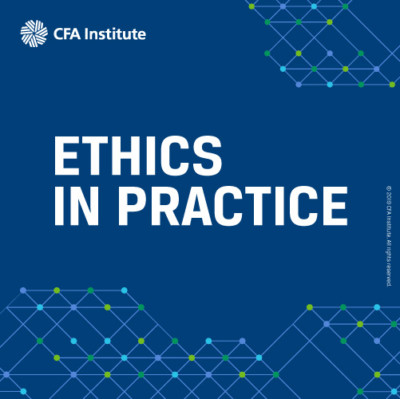Ethics in Practice: Trading in Warrants. Case and Analysis–Week of 4 November
Check out the analysis to see how you did in analyzing this week’s case (4 November) and determining which CFA Institute Standard was involved.
Case
Ng is an investment adviser for Lashki Investment Services. Ng places several buy orders for a warrant in the underlying stock of Universal Entertainment Enterprises through a client’s account, causing the price of the warrant to increase significantly. Ng then immediately sells his entire personal holdings in the warrant to the client, making a profit of $14,510 and generating a loss of $13,040 for the client. Ng’s actions violate the CFA Institute Standards of Professional Conduct related to
- personal investing.
- market manipulation.
- loyalty to the client.
- personal investing, market manipulation, and loyalty to the client.
- none of the above.
Analysis
Ng violated the CFA Institute Standards of Professional Conduct related to personal investing, market manipulation, and loyalty to the client. Ramping up the warrant’s price to facilitate the offloading of his personal holdings in the warrant for his own benefit and to the detriment of the client prioritizes Ng’s personal investments over the client’s in violation of CFA Standard VI(B): Priority of Transactions, which states that investment transactions for clients must have priority over personal transactions. The conduct also violates CFA Institute Standard III(A): Loyalty, Prudence, and Care, which requires CFA Institute members to act for the benefit of their clients and place their client’s interests before their own.
Additionally, Ng’s conduct is unfair to other market participants because it interfered with the impartiality and objectivity of the normal price formation and may have affected other investors trading strategy and investment decision in the warrant, all in violation of CFA Standard II(B): Market Manipulation, which prohibits CFA Institute members from engaging in practices that distort prices or artificially inflates trading volume. Choice D is the best response.
This case is based on an October 2019 enforcement action by the Hong Kong Securities and Futures Commission.
Let us know what you think of Ethics in Practice by taking this short survey.
Have an idea for a case for us to feature? Send it to us at [email protected].
More About the Ethics in Practice Series
Just as you need to practice to become proficient at playing a musical instrument, public speaking, or playing a sport, practicing assessing and analyzing situations and making ethical decisions develops your ethical decision-making skills. The Ethics in Practice series gives you an opportunity to “exercise” your ethical decision-making skills. Each week, we post a short vignette, drawn from real-world circumstances, regulatory cases, and CFA Institute Professional Conduct investigations, along with possible responses/actions. We then encourage you to assess the case using the CFA Institute Ethical Decision-Making Framework and through the lens of the CFA Institute Code of Ethics and Standards of Professional Conduct.
Image Credit: ©CFA Institute

